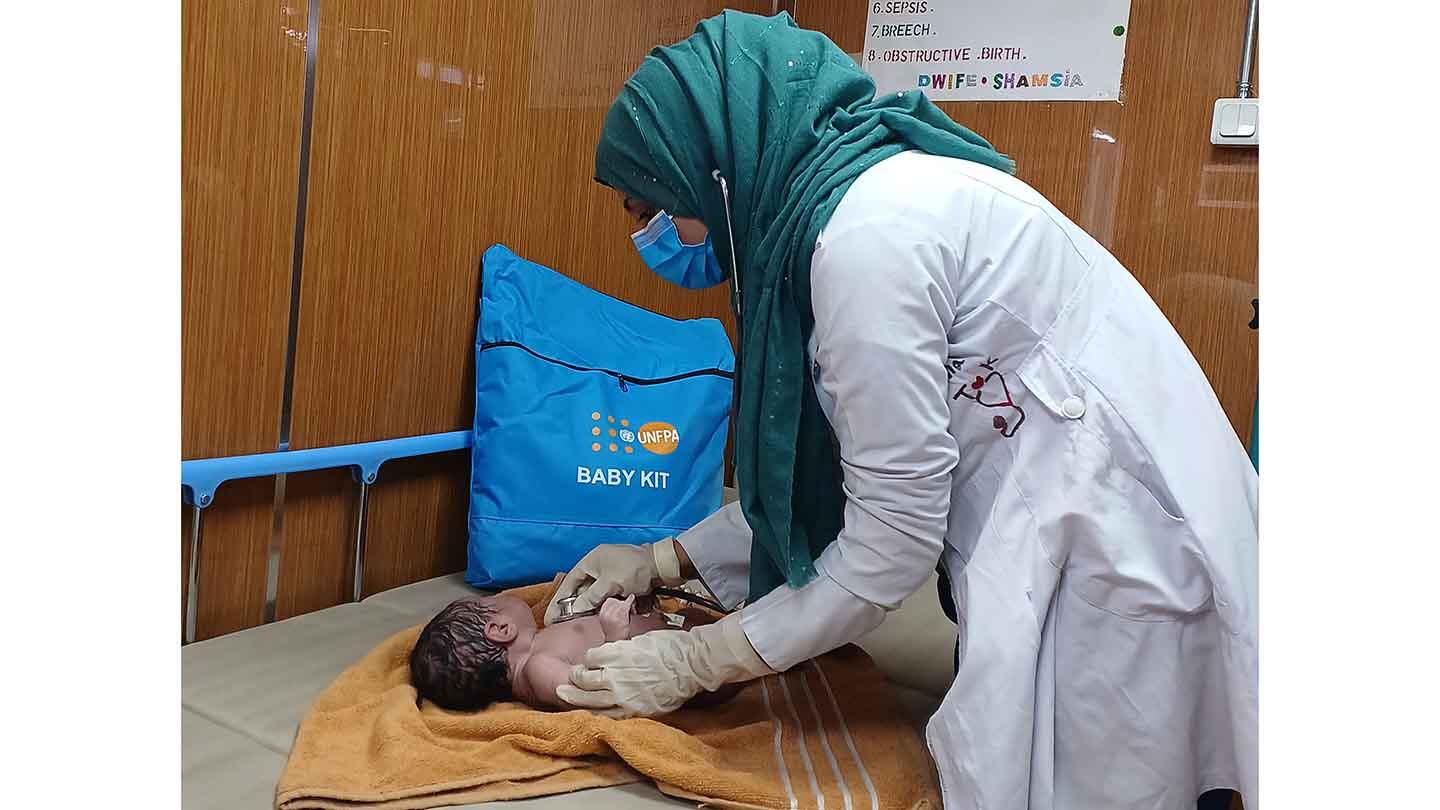Kandahar, Afghanistan – “Each successful childbirth is a victory against all odds—poverty, trauma, displacement, and fear. We are not just delivering babies; we are helping women find hope, dignity, and a sense of safety in crisis.”
Tamana Tokhi is one of the midwives working at UNFPA’s Emergency Maternity Clinic at the Reception Centre for returning Afghan refugees, in Takhtapol District, Kandahar. Since the start of April 2025, Tamana has spent more time in the clinic to attend to the increasing number of women seeking medical services, especially pregnant women.
“The number of patients has increased significantly due to the returnee situation. Our days in the clinic have become long and demanding,” Tamana said. “Despite the exhaustion, I remain fully present and committed. Every woman who walks through our doors deserves care and dignity—no matter how tired I am.” Since the beginning of April, the clinic has delivered 17 babies.
There are days that Tamana works up to 12 hours a day at the EMC. She and her colleagues are managing an intense caseload. In the first quarter of 2025, 2,331 people have received services, ranging from deliveries to antenatal and postnatal care, family planning, and counselling.
Tamana’s work requires more than medical skill—it demands mental and emotional resilience. She shared one critical case of a pregnant woman returning from Pakistan who crossed the border into Afghanistan with severe pre-eclampsia after travelling for days with no access to healthcare.
“Her life—and her baby’s—were in serious danger,” Tamana recalled. “I began emergency treatment without delay. We monitored her closely and stayed calm. Hours later, she delivered a healthy baby. When I placed the child in her arms, we both cried.”
These moments keep Tamana committed to her work. As the days become more challenging with the influx of returnees at the borders, the midwife prepares herself by keeping healthy, as well as finding moments of quiet reflection and leaning on her team for support.
“Every delivery is different,” she added. “But each safe birth feels like a victory against all odds—poverty, trauma, displacement, and fear. We are not just delivering babies; we are helping women find hope, dignity, and a sense of safety in crisis.”
“This work has changed me. I no longer see myself as just a health worker. I am a sister, a healer, and a silent soldier for every woman who needs us.”
The words of a mother who had just given birth assisted by Tamana are a testament to the midwife’s work: “I arrived with nothing but fear and uncertainty. The warmth and care I received here gave me hope. Holding my baby, I feel a strength I never knew I had.”
The EMC was established by UNFPA and the Agency for Assistance and Development of Afghanistan (AADA) at the reception centre through the support of the Government of the United Kingdom. In the first quarter of 2025 alone, the clinic has assisted 66 deliveries. Behind each number is a woman like Rafia—uncertain but hopeful, and needing safety for herself and her baby.


